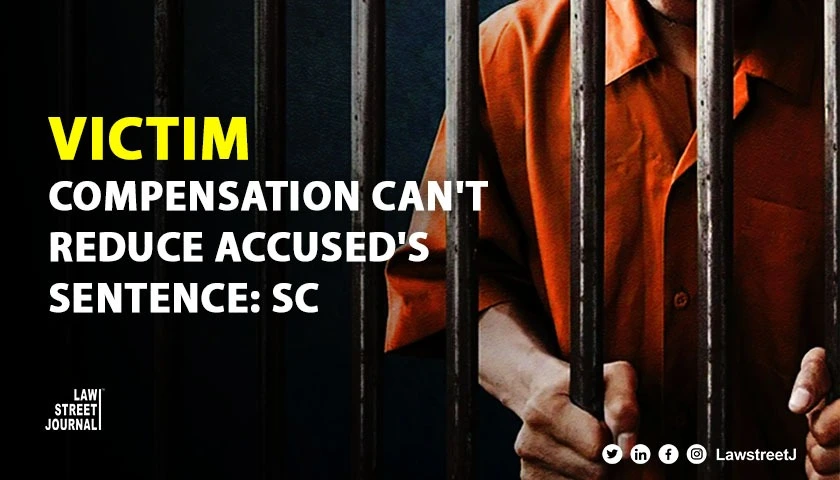NEW DELHI: The Supreme Court has said payment of compensation to the victim in a criminal case stood on a completely different footing and it cannot be a ground to reduce the sentence of the accused.
A bench of Justices J B Pardiwala and Manoj Misra said the idea of victim compensation is based on the theory of victimology which recognises the harsh reality that victims are unfortunately the forgotten people in the criminal justice delivery system.
"Victims are the worst sufferers. Victims' family is ruined particularly in cases of death and grievous bodily injuries. This is apart from the factors like loss of reputation, humiliation, etc," the bench said.
The victim compensation is based on a premise that mere punishment of the offender may not give solace to the aggrieved person or their family, the court said.
Appellant Rajendra Bhagwanji Umraniya questioned correctness of the Gujarat High Court's judgment, which reduced five years sentence imposed upon two men to four years jail in a case related to causing grievous hurt and other offence. The High Court also said the convicts need not undergo even the four years of sentence, if they paid Rs 2.50 lakh to the victim.
In his submission, the complainant-appellant contended what the HC did in the case was impermissible in law.
However, noting that 12 years has elapsed since the incident and the convicts have already deposited Rs 5 lakh, the bench said, "We are not inclined to direct them to undergo further sentence of four years".
The court directed them to deposit a further sum of Rs 5 lakh each within eight weeks, thus, a total sum of Rs 15 lakh would be paid to the victim.
In its order, dealing with the victim compensation under Section 357 Criminal Procedure Code, the apex court said it is not a punitive measure but only restitutory in nature and thus, has no bearing with the prison term.
The provision of Section 357 CrPC is victim centric in nature, which has nothing to do with the convict or the sentence passed, the court said.
"If payment of compensation becomes a consideration for reducing sentence, then the same will have a catastrophic effect on the criminal justice administration. It will result in criminals with a purse full of money to buy their way out of justice, defeating the very purpose of criminal proceedings," the bench said.
When deciding the compensation for victim, the only factor that the court may take into consideration is the convicts capacity to pay and not the sentence that has been imposed, it said.
"In criminal proceedings the courts should not conflate sentence with compensation to victims. Sentences such as imprisonment and / or fine are imposed independently of any victim compensation and thus, the two stand on a completely different footing, either of them cannot vary the other," the bench said.















